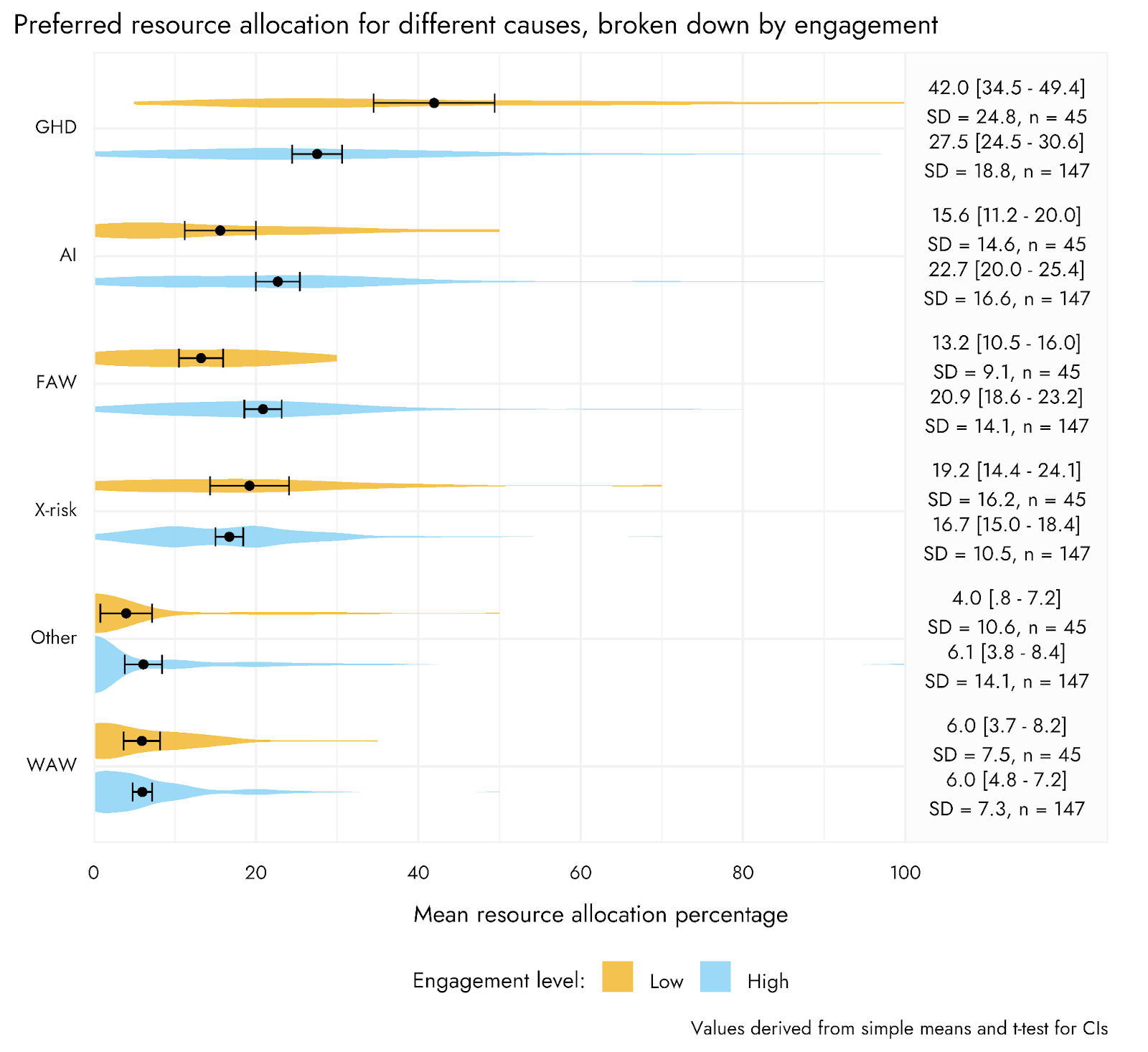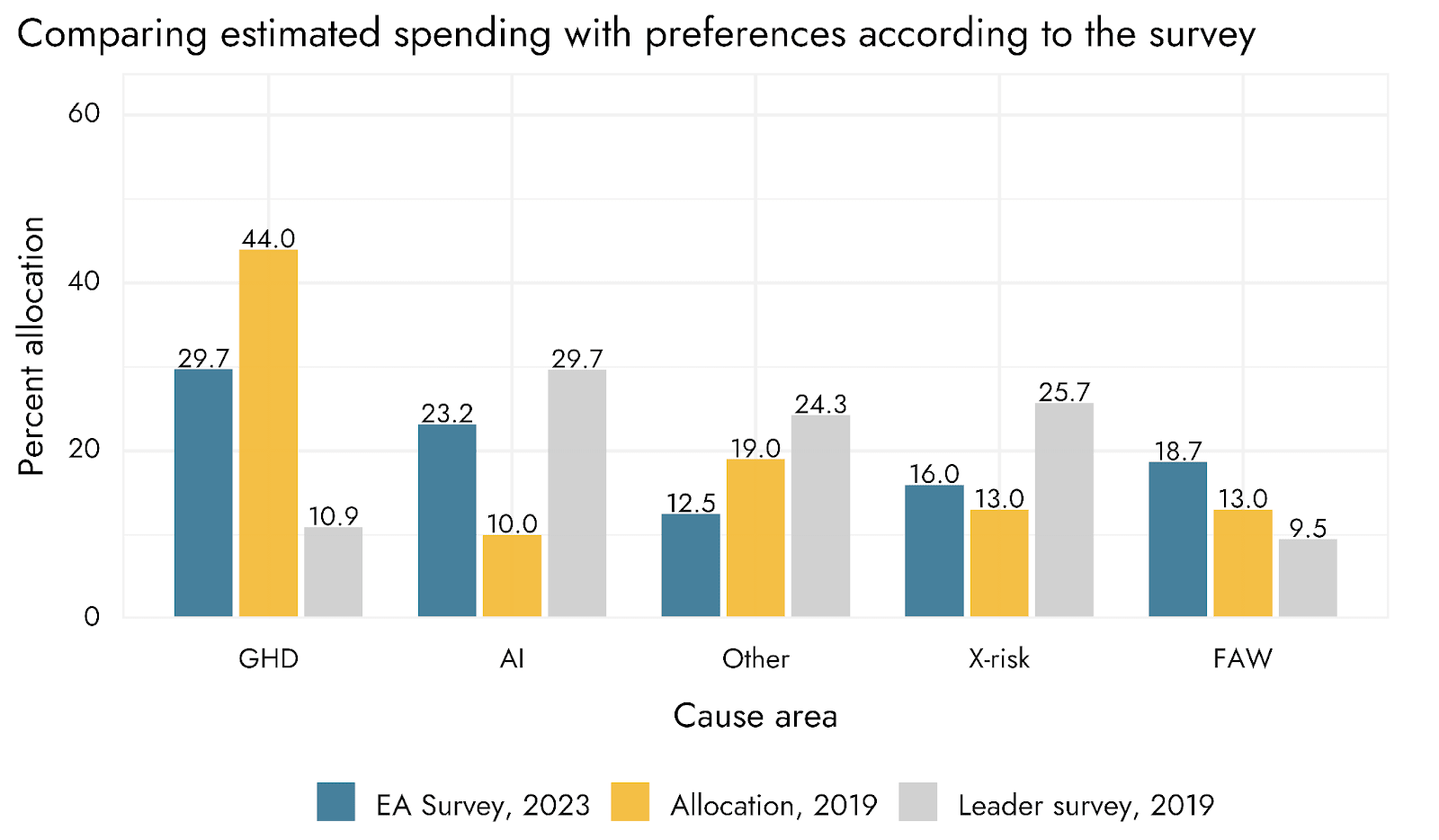When you comment on your vote on the debate week banner, your comment will appear on this thread. Use this thread to respond to other people's arguments, and discuss the debate topic.
You should also feel free to leave top-level[1] comments here even if you haven't voted. As a reminder, the statement is "It would be better to spend an extra $100m on animal welfare than on global health".
If you’re browsing this thread- consider sorting by “New” and interacting with posts that haven’t been voted or commented on yet. There are a lot of comments!
Also- perhaps don’t vote karma below zero for low effort submissions, we don’t want to discourage low effort takes on the banner.
- ^
The first comment in a thread is a top-level comment.



Hm, the post is good, though I see this as a relatively weak statement. The amount of factory farming would be massively lower than now, presuming that my assumptions about people switching off of meat are true.
I also expect that if we get a big boost of technology (even better AI-driven protein/chemical synthesis or discovery), then I don't expect the argument that we'll still farm them for dyes and such to hold. As the years go by, it becomes ever more feasible to synthesize those useful dyes or materials directly. The outcome described there would still be a lot less (several orders of magnitude?) factory farming. I do think this point depends notably on how soon you think the technology will occur and solve a lot of the general problem (getting chemicals/proteins en masse). I find it plausible that it will come before we solve various meat alternatives (in the better or equivalent price/taste/cost/nutrition sense), but also find it mildly plausible that it takes a decade or two after.
Point three of the article that AI will make factory farming more efficient is true, but also I don't have a reason to believe the final conclusion. Big data analytics does not provide notable evidence to believe that factory farming will outcompete alternative methods in the long run—it is an argument that they aren't constant and so have a longer shelf-life than the naive extrapolation. Growing an animal simply requires a lot of work and energy in a specific form that I don't have any reason to believe alternative meats require as much. As for the bioengineering example, a similar argument implies. To me, this is like saying that a person down in a mine is always going to be more efficient and scalable than a digging machine.
Point four is one that I think fills out a difference in vision. They compare it to chocolate which hasn't been replaced. My model of the world is that over the next thirty or so years we have significant advancement in fields like chemical synthesis, reverse engineering proteins, and so on. I don't see any reason to believe chocolate won't be replaced! Many of the foods made from it alter the taste massively themselves, if food companies could replace chocolate with a significantly cheaper version then they would. I believe they would be slower about it, it presumably doesn't cost much and has been quite tuned.
It feels like there's a missing note in the post, that they think things will stay comparatively the same as 2020 level competitiveness even though there's very little reason to believe that. Why should I think that growing a full animal is remotely efficient for any of our needs?
There are some good points or areas to think about, and the weakest claim that there might be a notable amount of factory farming is true, but I feel overall a bit baffled by the thrust of the article. There's a missing note to the post, a strong background assumption that technology will continue looking as it is circa 2020 with no major optimizations feasible. AI isn't an integral part of my point, though I believe if it succeeds as it has so far then the timescale for various synthesis methods and the like moves up quite a lot, so I don't view that quite as the distinction.